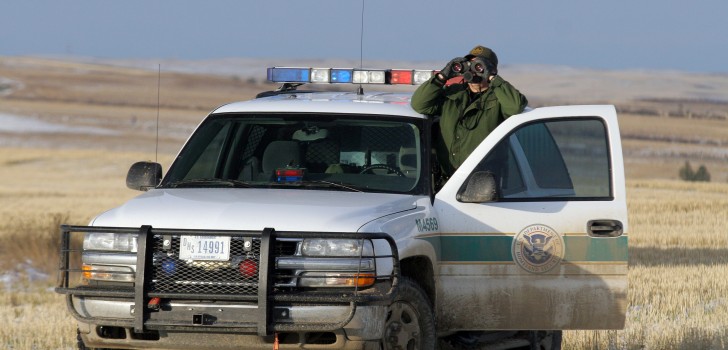While many police departments have started embracing body cameras as a way to ensure that officers act in an ethical manner, one group will not be using the cameras in the United States — Customs and Border Protection (CBP). The cameras typically promote public trust and accountability, which are principles that the CBP doesn’t care much about.
The CBP says that it won’t be using the cameras because they are costly and not necessarily suited to desert terrain. The agency has also said that the cameras can be distracting for agents, and they might be detrimental to their morale.
Last year, the CBP announced that it would test body cameras. Nearly 100 agents tested the cameras at the end of last year. Apparently, they were not happy with the results. The staff who tested the cameras questioned their effectiveness, and they said that more testing was needed before a complete distribution throughout the agency took place.
But perhaps most concerning is that agents using the cameras said that they felt the cameras could be used to get them into trouble for their actions. The point of the cameras is to discourage unethical behavior, so to even use this as an excuse is laughable.
CBP Commissioner R. Gil Kerlikowske said, “Putting these in place, as you know, is not only complicated; it’s also expensive. We want to make sure we do this right.”
Introducing body cameras throughout the agency would cost the CBP millions of dollars. Also, agents would be subject to additional training in order to properly operate the cameras.
Body cameras started becoming popular for police departments after the incident in Ferguson, MO, in which Michael Brown was shot and killed by a police officer.
Most departments that have tested the cameras have said that they are pleased with the results. It’s highly questionable that one of the nation’s largest enforcement agencies shunned the usage of these cameras.
United States President Barack Obama says that he supports the use of body cameras. His administration has provided millions of dollars to local police departments in order to help them obtain the technology.
The CBP has been highly criticized in the past for using unnecessary force. Reports indicate that agents and officers of the CBP have killed 40 people since 2010. Clearly, they would be a leading candidate to use body cameras.
Many people are extremely disappointed with the CBP for deciding not to use the cameras.
The director of the Southern Border Communities Coalition Christian Ramirez said, “You can’t hide that CBP is a broken agency that needs to immediately implement 21st century accountability standards and one of those tools is body-worn cameras.”
Roughly 60,000 people are employed by the CBP.
Stay Connected